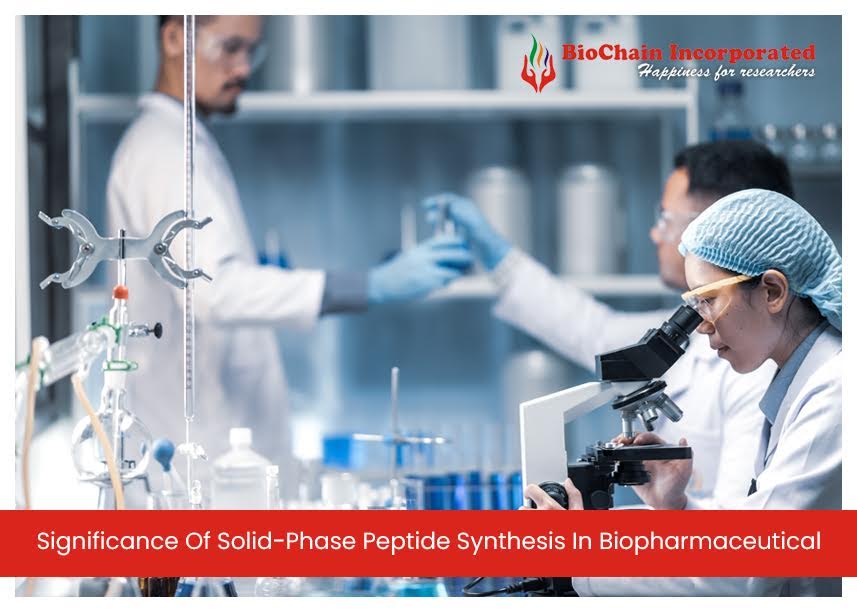What Is Solid-Phase Peptide Synthesis? Is It Vital For Research?
Solid-phase peptide synthesis in India includes the consecutive addition of secure amino acid derivatives. The combination takes place on a growing peptide.
The potential to synthesize peptides at a high purity level is revolutionizing research. Furthermore, it leads to the development of a huge range of strong therapeutic vaccines as well as agents. Know more about it from thermo fisher scientific products distributors.
How Do Peptides Offer Diversity When Searching For New Drugs?
-
When it comes to providing diversity, therapeutic peptides have a lot of benefits. This includes high activity, biological as well as chemical diversity, and low toxicity. Additionally, advancements in solid-phase peptide synthesis help in the efficient synthesis of custom peptides.
-
Next, one receives an improving function along with higher resistance to degradation. There is also a chance of higher purity along with low cost in comparison to protein-based biologicals. Such benefits drive a dynamic peptide drug discovery procedure.
-
Therapeutic peptides may work simply in peptide replacement. For example, insulin is beneficial for the delivery of cytotoxic elements into specific cells. There are various examples of the research diversity into therapeutic peptides.
-
Solid-Phase Peptide Synthesis also operates as antivirals. It mainly targets HIV, hepatitis or influenza by impeding the replication cycle. This is one approach that helps to tackle the ongoing research processes concerning the pandemic.
Purity Of Peptides Is Crucial
-
Development in peptide-based academic research depends on the correct optimization of SPPS. If all the steps reach 100% completion, then there will only be the production of the full-length peptide. This happens very rarely no matter how well you optimize the protocols.
-
Side and incomplete reactions result in a low yield of the desired product even at low levels. When it comes to purifying peptides for matching your application, decide what level of it is necessary. Additionally, you may also have to consider what impurities influence your application.
-
Interference with target-binding generally consists of truncation sequences, deletion sequences, incompletely secure sequences, and much more. Interference in cell-based assays comprises acetic acid and TFA. Preventing specific issues may require optimization of the downstream processing steps, such as a salt exchange step.
-
Finally, one can conclude that to achieve purity one needs to indicate the optimization of the efficiency of the right coupling. Moreover, it reduces the side reactions, racemization as well as deletions to an appreciable level. This will further involve direction sequence-specific issues by long peptides. Hence, this was all about the ability to synthesize peptides on a higher scale.
To Conclude
Contact Biochain, the best peptide manufacturing company if you want to make a difference in your biological research.



.png)

.png)


.png)
.png)
.png)
.png)
.png)